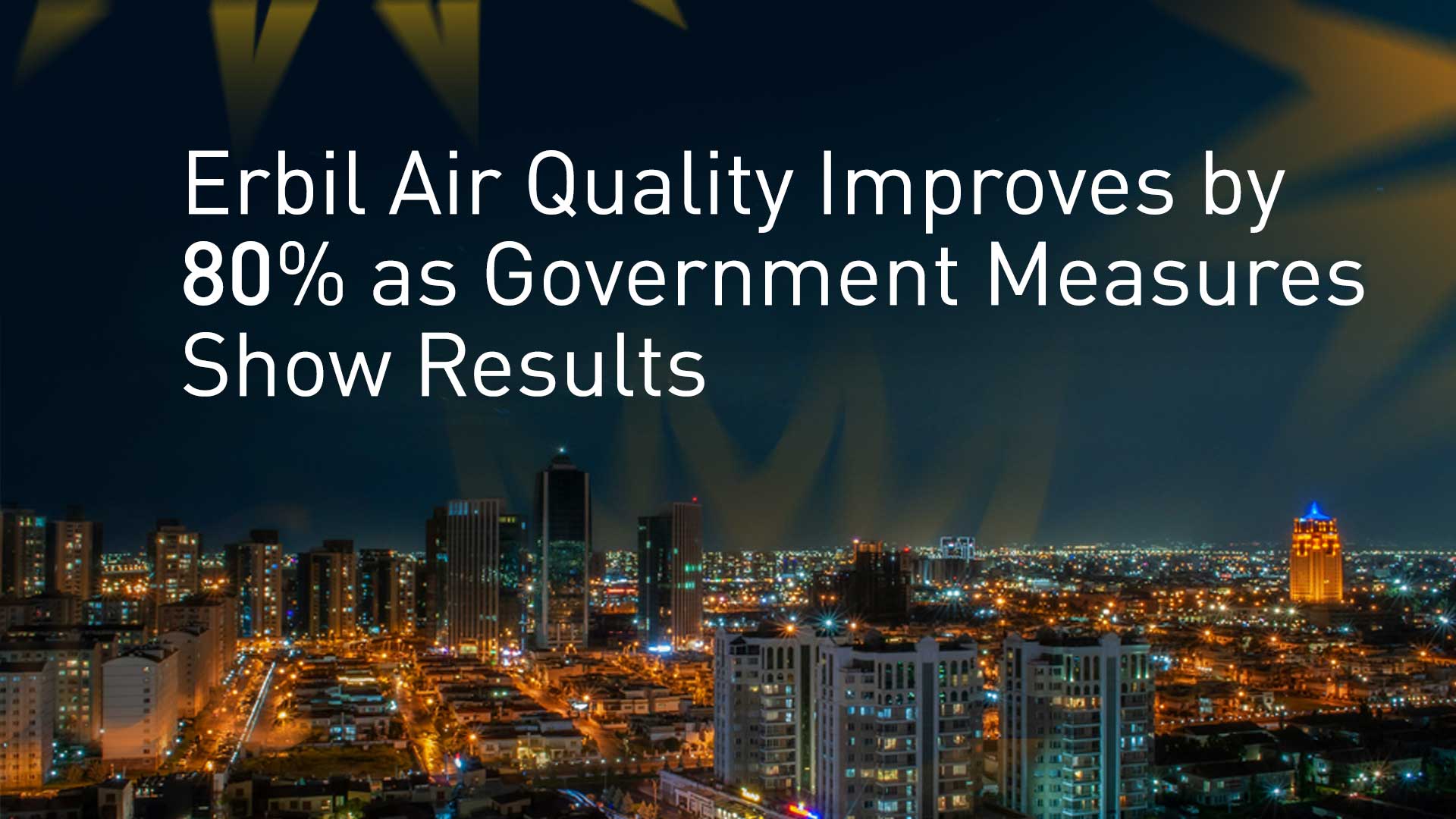Erbil Air Quality Improves by 80% as Government Measures Show Results
He revealed that current air quality levels are 80% better than last year, with 50% of the improvement directly attributed to the Kurdistan Regional Government’s (KRG) Runaki program.

ERBIL (Kurdistan24) – The director of the Erbil Environmental Office, Dilshad Hirani, announced on Sunday that the capital’s air quality has significantly improved compared to previous years, thanks to coordinated government initiatives and regulatory measures.
“The air in Erbil is getting cleaner, but it still requires more efforts to maintain this improvement,” Hirani told Kurdistan24. He revealed that current air quality levels are 80% better than last year, with 50% of the improvement directly attributed to the Kurdistan Regional Government’s (KRG) Runaki program.
“This is a significant accomplishment, as we haven’t been able to achieve such results in many years,” he emphasized.
Key Drivers of Cleaner Air
Hirani highlighted several factors behind recent progress, including:
1- A sharp reduction in diesel generators across neighborhoods.
2- The closure of illegal oil refineries.
3- Installation of filters in restaurants to reduce smoke pollution.
4- Stricter measures to curb excessive vehicle emissions.
5- Improved quality of diesel and gasoline supplied in the city.
He also pointed to the introduction of new regulations that have tightened oversight on fuel use and industrial activity.
Government Push Against Pollution
The improvement in air quality comes amid broader KRG efforts to address environmental challenges. On January 12, Prime Minister Masrour Barzani chaired a high-level meeting focused on combating pollution in both Erbil and Duhok. The session resulted in a series of decisions, including stricter monitoring, enhanced enforcement, and investment in cleaner energy alternatives.
The government’s Runaki program, launched to promote sustainability and reduce pollution, has become a central pillar in these efforts. Its impact is now being reflected in measurable improvements to Erbil’s atmosphere, which in recent years had been plagued by rising smog, a heavy reliance on private diesel generators, and poorly regulated fuel sources.
Broader Environmental Context
Environmental concerns have grown in the Kurdistan Region in recent years as rapid urbanization, population growth, and increasing vehicle use have placed mounting pressure on air quality. Experts have long warned about the health risks of unchecked pollution, including respiratory illnesses and long-term ecological damage.
The recent progress in Erbil is seen as a step forward in aligning the Kurdistan Region’s environmental policies with global sustainability standards. However, as Hirani stressed, further efforts are needed to ensure that the gains achieved this year are sustained and expanded in the years ahead.